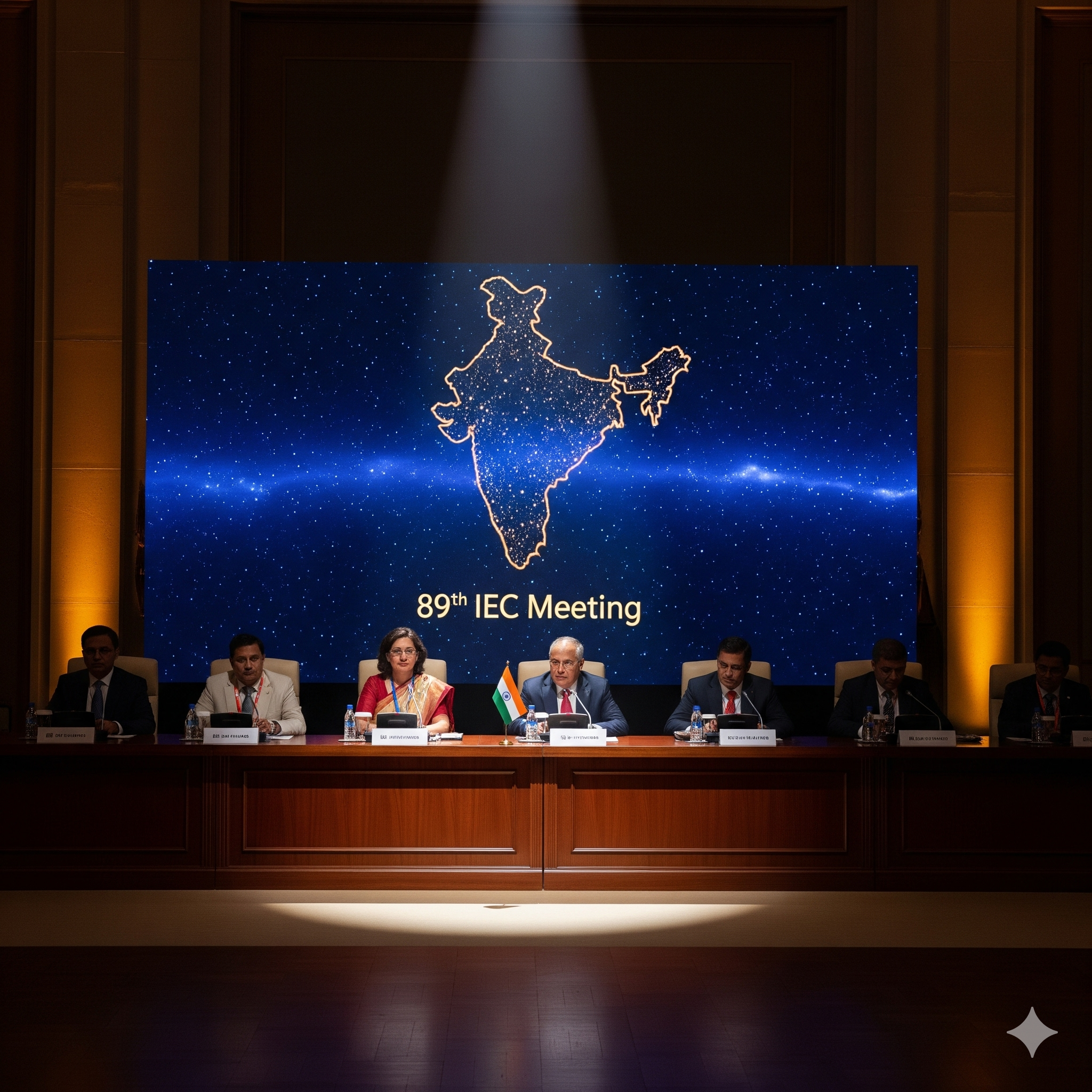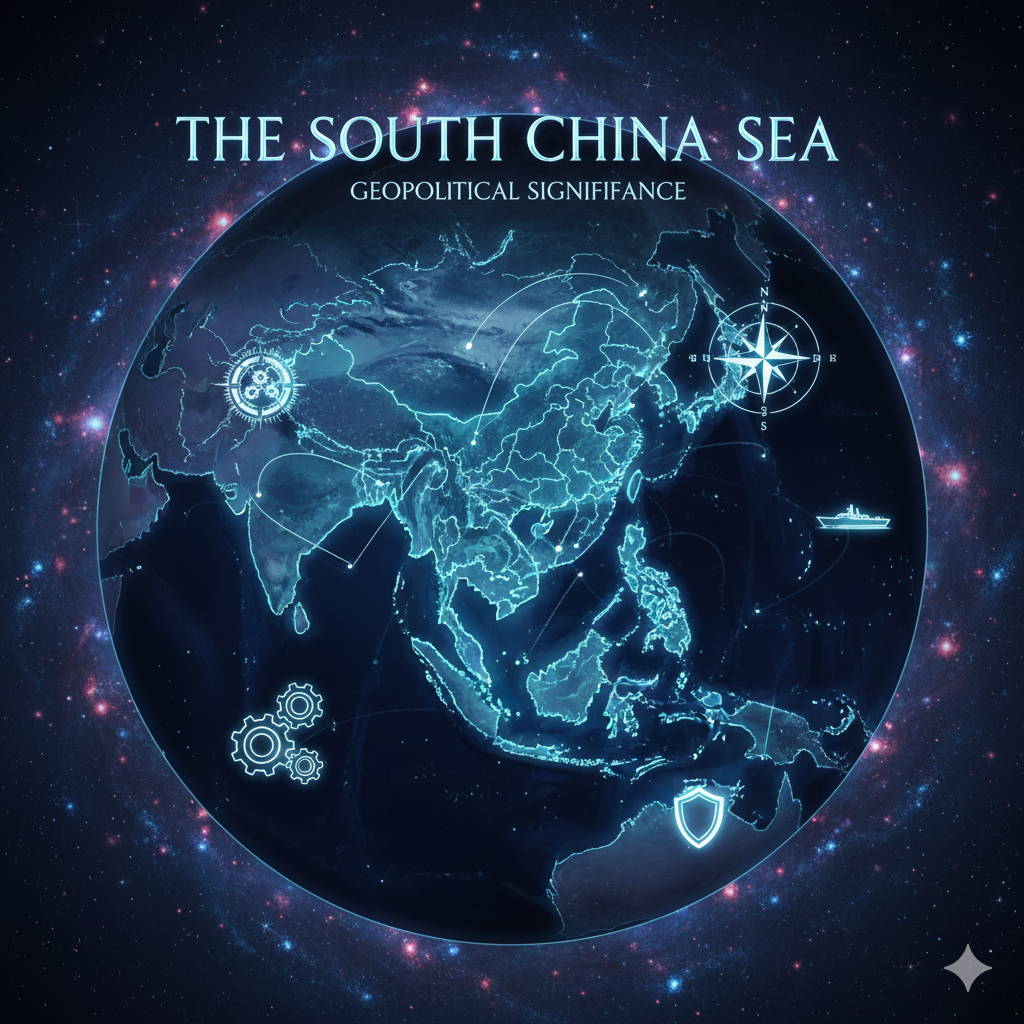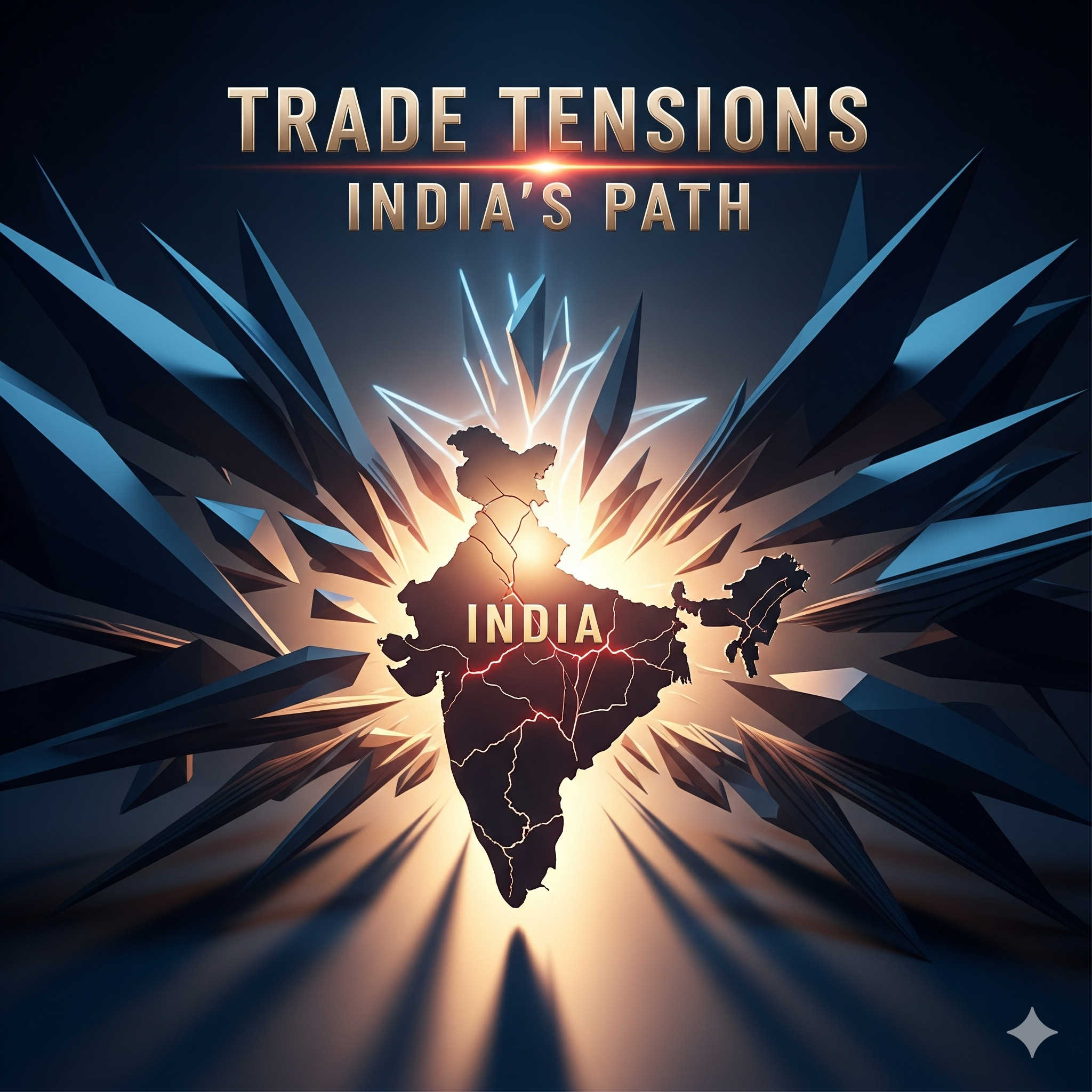Introduction
In an era defined by globalization, interconnected economies, and rapid technological advancement, the importance of international standards cannot be overstated. Standards create a common language for industries, governments, and innovators, ensuring that products and systems are safe, reliable, and compatible across borders. At the heart of this global framework lies the International Electrotechnical Commission (IEC), a leading international body dedicated to the preparation and publication of international standards for electrical, electronic, and related technologies.
The 89th General Meeting of the IEC, hosted by India, marks a significant moment not only for the global standardization community but also for India’s evolving role as a hub of technological innovation and industrial transformation. This event has provided a platform for global experts, policymakers, and industry stakeholders to deliberate on emerging challenges, foster collaboration, and strengthen the foundations of sustainable development through standardization.
This article explores the history and functions of IEC, details about the 89th General Meeting, India’s role in standardization, the implications for trade, industry, and governance, and the broader vision for technological leadership in the 21st century.
Understanding the IEC: Background and Significance
The International Electrotechnical Commission (IEC), founded in 1906, is one of the oldest and most influential international standard-setting organizations. Headquartered in Geneva, Switzerland, the IEC works to develop and publish international standards in the fields of electrical, electronic, and related technologies.
Key Objectives of the IEC
- Harmonization of Standards: To create globally accepted standards that remove trade barriers and ensure interoperability.
- Safety and Quality Assurance: To make sure electrical and electronic products meet globally accepted safety norms.
- Facilitation of International Trade: To simplify the movement of goods and services across borders.
- Promotion of Innovation: To support industries in adopting emerging technologies through standardized frameworks.
- Sustainability: To integrate environmental and energy efficiency considerations into standards.
Today, the IEC has over 170 member countries, representing a global consensus on how industries should function in the electrotechnical domain.
India’s Association with IEC
India has been an active member of the IEC for several decades. The Bureau of Indian Standards (BIS) represents India at the IEC and plays a critical role in aligning Indian standards with global benchmarks.
- India has contributed to technical committees and subcommittees of the IEC in areas like renewable energy, smart grids, electrical safety, and information technology.
- With its rapidly expanding economy and emphasis on Make in India, Digital India, and Atmanirbhar Bharat, India has become an important voice in shaping the standards of the future.
- Hosting the 89th IEC General Meeting is therefore both a recognition of India’s growing influence and a strategic opportunity to project leadership in global standardization efforts.
The 89th General Meeting of the IEC: An Overview
The General Meeting of the IEC is held annually in a member country, serving as the most important gathering of the international standardization community. The 89th edition, hosted by India, brought together representatives from governments, industries, academia, and standardization bodies from across the globe.
Major Highlights of the Event
- Venue & Participation: India welcomed hundreds of delegates, including technical experts, policymakers, and industry leaders.
- Key Agendas Discussed:
- Standardization for renewable and clean energy technologies.
- Emerging fields such as artificial intelligence, robotics, and smart cities.
- Cybersecurity in digital infrastructure.
- Role of standards in sustainable development.
- Showcasing India’s Progress: India presented its achievements in renewable energy, space technology, digital public infrastructure, and electric mobility.
- Collaborations: New partnerships and agreements were discussed to ensure global cooperation in technical fields.
The meeting served not just as a platform for global decision-making but also as a stage for India to highlight its capabilities and aspirations in the global technology and manufacturing landscape.
Why Hosting the IEC General Meeting Matters for India
India’s role as host carries both symbolic and practical significance.
1. Recognition of India’s Growing Status
By hosting the General Meeting, India has positioned itself as a global standardization hub. It reflects international recognition of India’s technological progress and manufacturing capacity.
2. Boost to Atmanirbhar Bharat and Make in India
Standards are critical for the success of domestic manufacturing industries. By influencing global standards, India can ensure that its products are globally competitive and that local industries do not face barriers in international markets.
3. Strengthening Trade Opportunities
Harmonization of standards directly impacts trade. For example, if Indian manufacturers adopt IEC-aligned standards, their products will be more easily accepted worldwide.
4. Strategic Importance in Emerging Technologies
India is a fast-growing hub for sectors like solar energy, electric vehicles, semiconductors, and IT services. Hosting this event strengthens India’s claim to leadership in future-oriented industries.
5. Showcasing Commitment to Sustainable Development
By engaging in discussions on renewable energy and environmental protection, India aligns itself with global sustainability goals, supporting its climate commitments.
Themes and Key Discussions at the 89th Meeting
The 89th General Meeting was not just a ceremonial event; it was a platform to discuss contemporary global challenges. Some of the themes included:
1. Renewable Energy and Clean Technology
- Standardization of solar panels, wind turbines, and green hydrogen technologies.
- Ensuring energy efficiency and sustainability in line with India’s net-zero goals.
2. Digital Transformation and Smart Infrastructure
- The role of standards in smart cities, IoT, and AI-based systems.
- Ensuring interoperability and safety in connected infrastructure.
3. Cybersecurity and Data Protection
- With increasing digitalization, cybersecurity has emerged as a major area of concern.
- Discussions revolved around creating global norms for data privacy, safety, and trust.
4. Inclusive Development
- How standards can help bridge the gap between developed and developing countries.
- Ensuring that innovations are affordable and accessible to all.
5. Capacity Building
- Training engineers, technicians, and policymakers in international standards.
- Encouraging developing countries to adopt global benchmarks.
India’s Strategic Vision Through IEC Participation
India’s hosting of the IEC meeting aligns with its long-term development goals.
- Viksit Bharat 2047: India’s vision of becoming a developed nation by 2047 requires leadership in innovation, manufacturing, and technology. Participation in global standardization is key to this.
- Digital Public Infrastructure: From UPI to Aadhaar, India has shown that scalable digital platforms can transform governance. Standardization ensures such systems can be replicated and adapted globally.
- Green Energy Leadership: As one of the largest renewable energy markets, India can influence standards for green hydrogen, solar, and EVs.
- Global South Leadership: India can act as a voice for developing nations, ensuring fair and inclusive global standards.
Implications for Trade, Technology, and Industry
For Trade
- Easier access to global markets for Indian goods.
- Reduction in technical trade barriers.
- Enhanced global credibility of Indian manufacturers.
For Technology
- Better alignment with cutting-edge research and innovation.
- Standardization of AI, robotics, and IoT ensures safe adoption.
For Industry
- Encouragement for Indian companies to invest in R&D and innovation.
- Improved competitiveness in global supply chains.
Challenges Ahead
While India’s role in hosting the IEC meeting is commendable, there are challenges:
- Implementation of Standards: Many small and medium enterprises (SMEs) find it difficult to adopt international standards due to cost and technical expertise barriers.
- Need for Skilled Workforce: Aligning with global standards requires a technically skilled workforce.
- Balancing Global and Local Needs: Sometimes, global standards may not reflect the realities of developing nations. India must balance its domestic priorities with international expectations.
- Infrastructure Gaps: Standard adoption requires strong testing, certification, and regulatory frameworks, which are still evolving in India.
The Way Forward
For India to fully capitalize on the opportunities from hosting the IEC meeting:
- Strengthen BIS and National Standardization Bodies: Increase funding, capacity, and global presence.
- Promote Industry-Academia Collaboration: Encourage universities to align curricula with international standardization needs.
- Incentivize SMEs: Provide subsidies or technical assistance to small industries for adopting standards.
- Enhance Public Awareness: Promote the importance of standards in everyday life to build public trust.
- Leadership in Future Technologies: Take a proactive role in framing standards for AI, quantum computing, semiconductors, and green hydrogen.
Conclusion
The 89th General Meeting of the IEC hosted by India marks a defining moment in the country’s journey toward technological self-reliance and global leadership. By bringing together experts from around the world, India has not only showcased its achievements but also demonstrated its readiness to shape the future of global standardization.
As the world transitions toward clean energy, digital transformation, and sustainable growth, India’s active participation in international standard-setting will help it secure trade advantages, build industrial strength, and project global influence.
Ultimately, this event highlights that standards are not just technical documents—they are strategic tools that can determine the pace of industrial progress, the safety of societies, and the competitiveness of nations. For India, hosting the IEC meeting is more than an achievement—it is a commitment to shaping a future-ready world.




